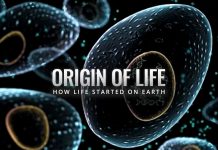The idea of living forever has always fascinated humanity. Throughout history, countless stories have been written about characters seeking the elixir of life, the fountain of youth, or some other magical method to achieve immortality. But what if it wasn’t just a fantasy? What if science could actually help us extend our lifespans indefinitely?
That’s the question at the heart of the documentary film, The Immortalists. The movie follows two scientists, Dr. Bill Andrews and Dr. Aubrey de Grey, who are working tirelessly to unlock the secrets of eternal youth. Both men are convinced that aging is a disease that can be cured, and they’re pursuing different approaches to achieving that goal.
Dr. Andrews is a molecular biologist who is focused on telomeres, the protective caps on the ends of our chromosomes that degrade as we age. He believes that by finding a way to prevent telomeres from shortening, we can stop the aging process in its tracks. To that end, he’s developed a compound called TAM-818 that he believes can do just that.
Meanwhile, Dr. de Grey is a biomedical gerontologist who is focused on repairing the damage that accumulates in our cells over time. He believes that by identifying and reversing the seven major types of cellular damage that cause aging, we can effectively “reset” the body to a younger state. His approach is known as “Strategies for Engineered Negligible Senescence” or SENS.
Throughout the film, we see both scientists at work in their labs, as well as the personal struggles they face as they age themselves. Dr. Andrews is in his sixties and is determined to stay fit and healthy for as long as possible, while Dr. de Grey has a somewhat more relaxed approach to his own health. But both men are united in their belief that aging is a disease that needs to be cured, and they’re willing to risk everything to make that happen.
The Immortalists is a fascinating look at the cutting-edge science of longevity research. It raises important questions about the ethical implications of extending human lifespans, and it challenges us to reconsider our assumptions about what it means to be mortal. But it’s also a deeply personal film, as we see the toll that aging takes on both the scientists and their loved ones.
In the end, The Immortalists doesn’t offer any easy answers. It’s clear that the science of aging is incredibly complex, and there are no guarantees that either Dr. Andrews or Dr. de Grey will achieve their goals. But the film is a powerful reminder of the human drive to push boundaries and seek new frontiers, even in the face of seemingly insurmountable challenges.

































